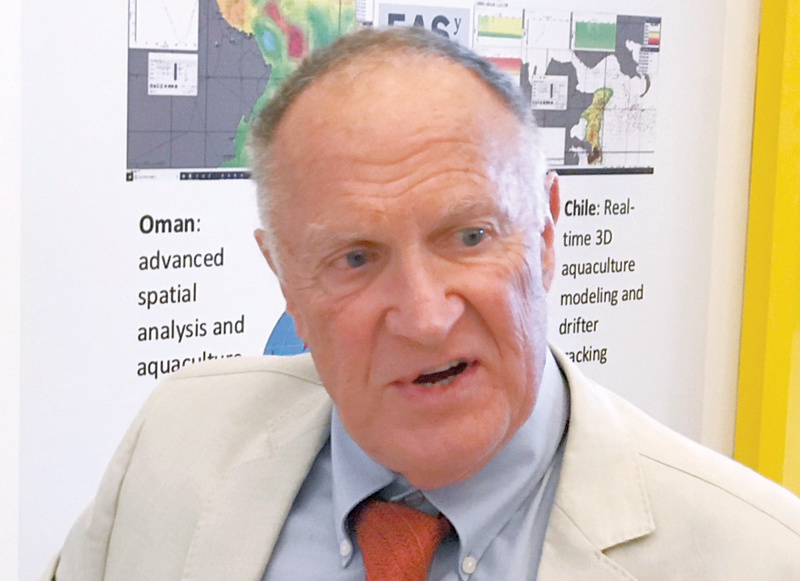

The National Aeronautics and Space Administration (Nasa) of the United States is supporting the development of an innovative system to help Oman manage its coastal resources, according to a key official associated with the initiative.
The Decision and Information System for the Coastal Waters of Oman (DISCO) is an integrative tool designed to provide decision-makers, among other stakeholders in the Sultanate, with critical informational necessary to respond to an array of marine hazards deemed potentially harmful to artisanal fishing, water desalination activities, and other routine coastal activities.
DISCO is the product of a collaborative effort that includes scientists from the Lamont-Doherty Earth Observatory at Columbia University (USA), Ministry of Agriculture and Fisheries (Oman), Marine Sciences and Fisheries Centre (Oman), and Sultan Qaboos University. Also playing a key role in the initiative is Seattle-based System Science Applications, which is providing the software for the system.
Giving details to journalists, Prof Dale Kiefer (pictured) of System Science Applications, said the project stems from a Nasa-sponsored initiative to help Omani officials react in a timely fashion to threats like harmful algal blooms (HABs), fish mortality, and other such perils.
“The primary goal initially was to provide early warning for harmful algal blooms that clog desalination plants, so they can be shut down, or to prepare for other problems based on our (data). (Our goal is) to try to offer a seven-day advance warning for harmful algal blooms,” said Prof Kiefer.
The tool is also designed to alert Oman’s authorities to conditions that may produce fish kills triggered by the depletion of oxygen in the water – a phenomenon known as hypoxia or ‘dead zones’.
“The primary goal of this tool is to monitor water quality that may affect fisheries and coastal water treatment, particularly desalination plants.” However, it can be also be applied, for example, in tracking illegal poachers, helping artisanal fishermen collaborate to optimise their catch, and so on, he noted.
The new system is proposed to be installed at the Marine Sciences and Fisheries Centre in Al Bustan within a month.
Oman Observer is now on the WhatsApp channel. Click here



